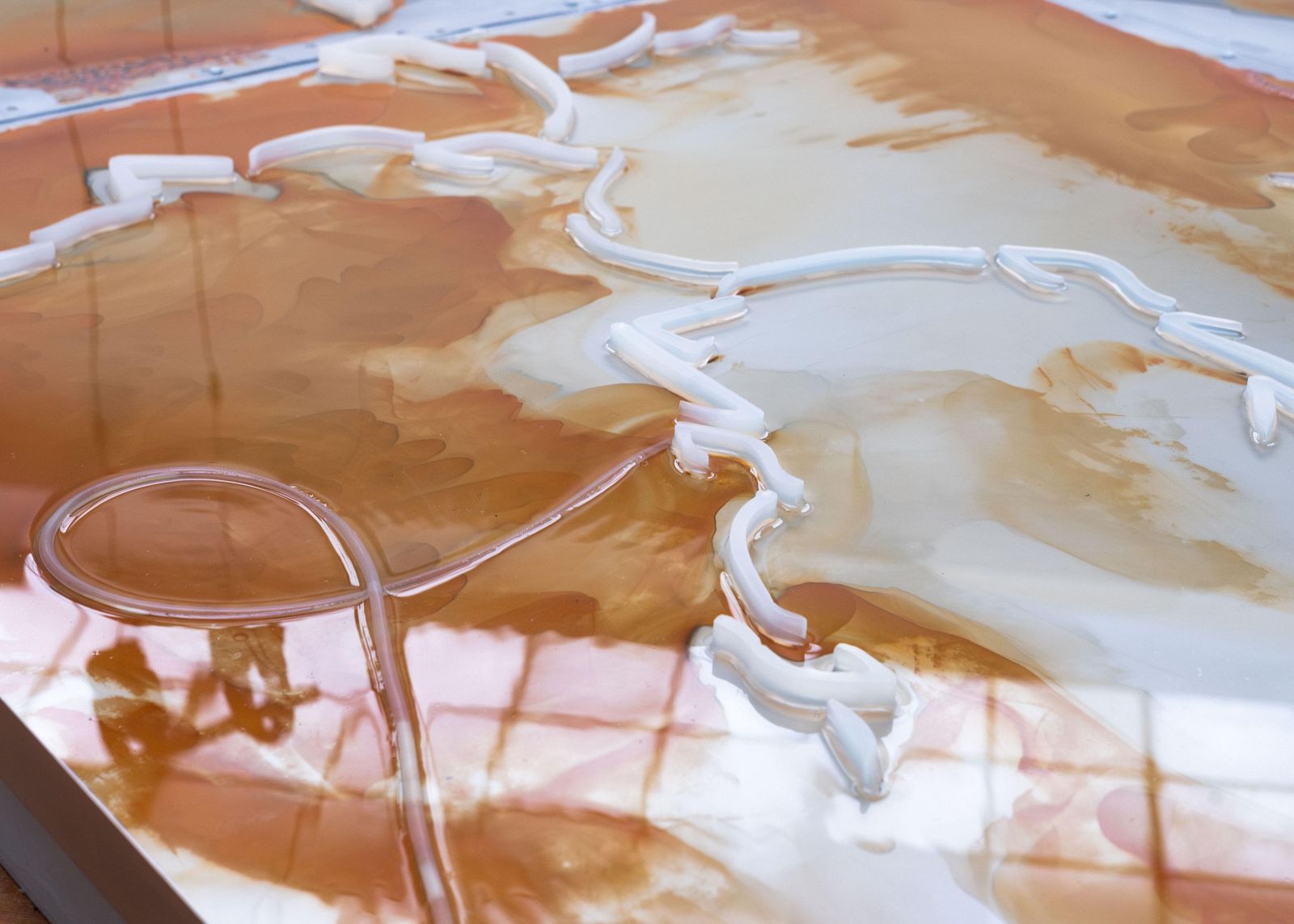
At times forgetting what has been constructed as my native tongue and as such being unable to speak with loved ones, I question the concept of a mother tongue as a political construct.
I reflect upon how language at times excludes when people migrate from one country and native tongue to another.
The installation consists of a transforming space with an accumulation of writing systems.
It builds an environment that transforms language into decay. As an outsider of a language, any written or spoken words are purely strokes and phonetics. Language becomes sounds in your ears and lines in your eyes when you are no longer listening or reading to look for the meaning of words.
When language ends up excluding and including depending on who does and who does not speak,
at the end of the sentence, it rotted searches for a language that includes all. Through rust and decay, it presents a living image that defies categorization by being in constant motion. It’s a return to a time of pre-linguistics, where sound and touch are prominent. To return to a time before words became the dominant way of communicating.
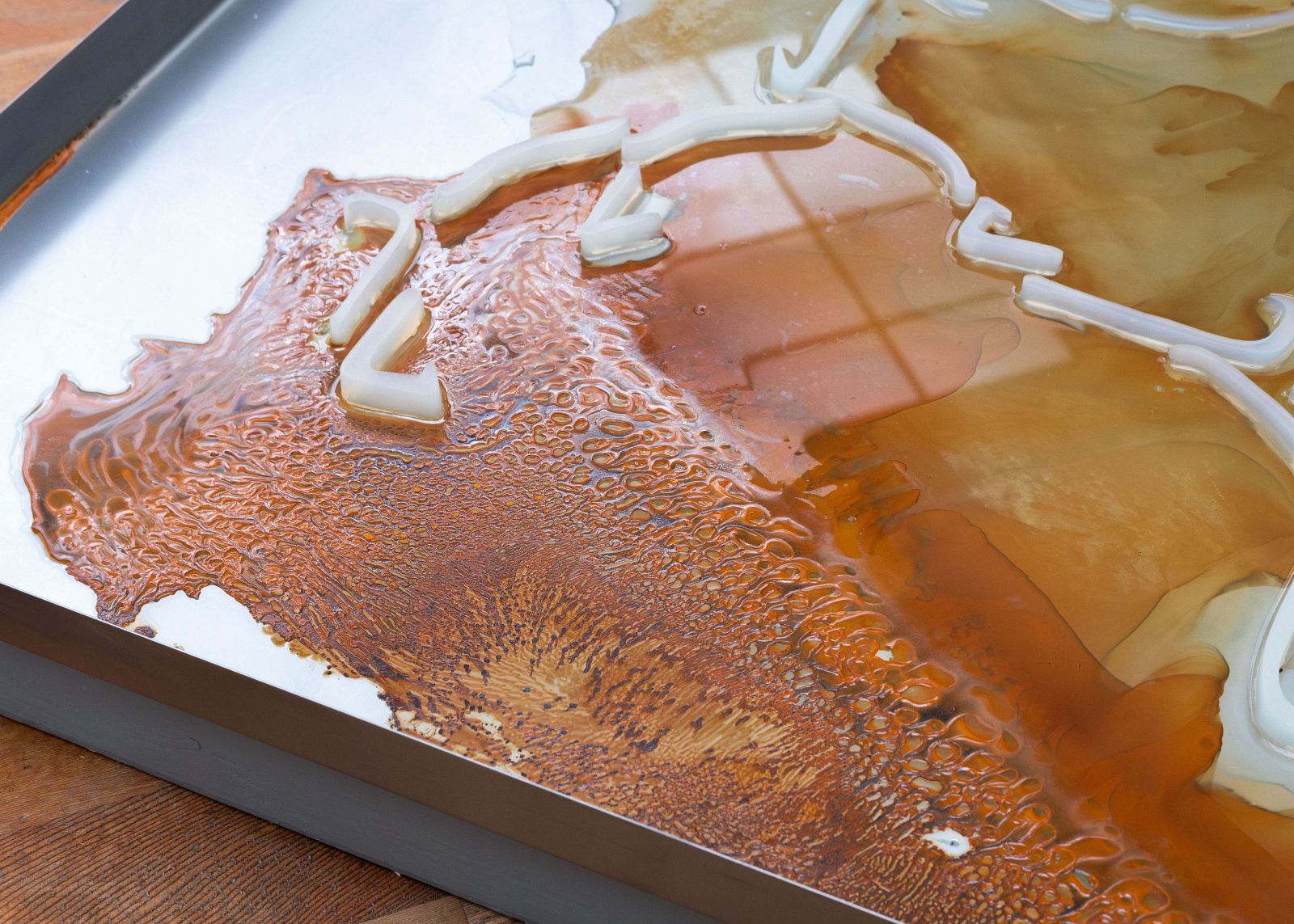
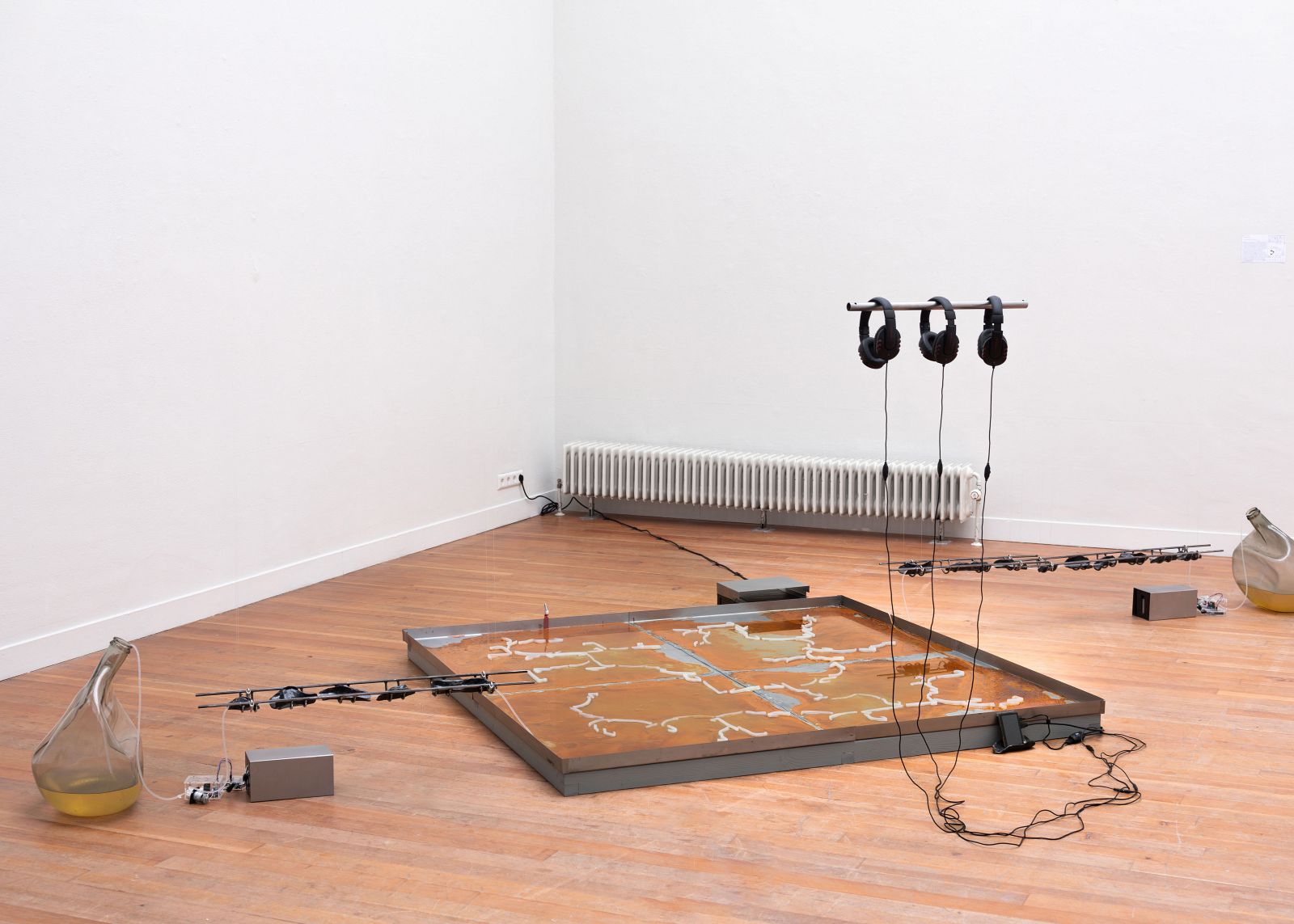
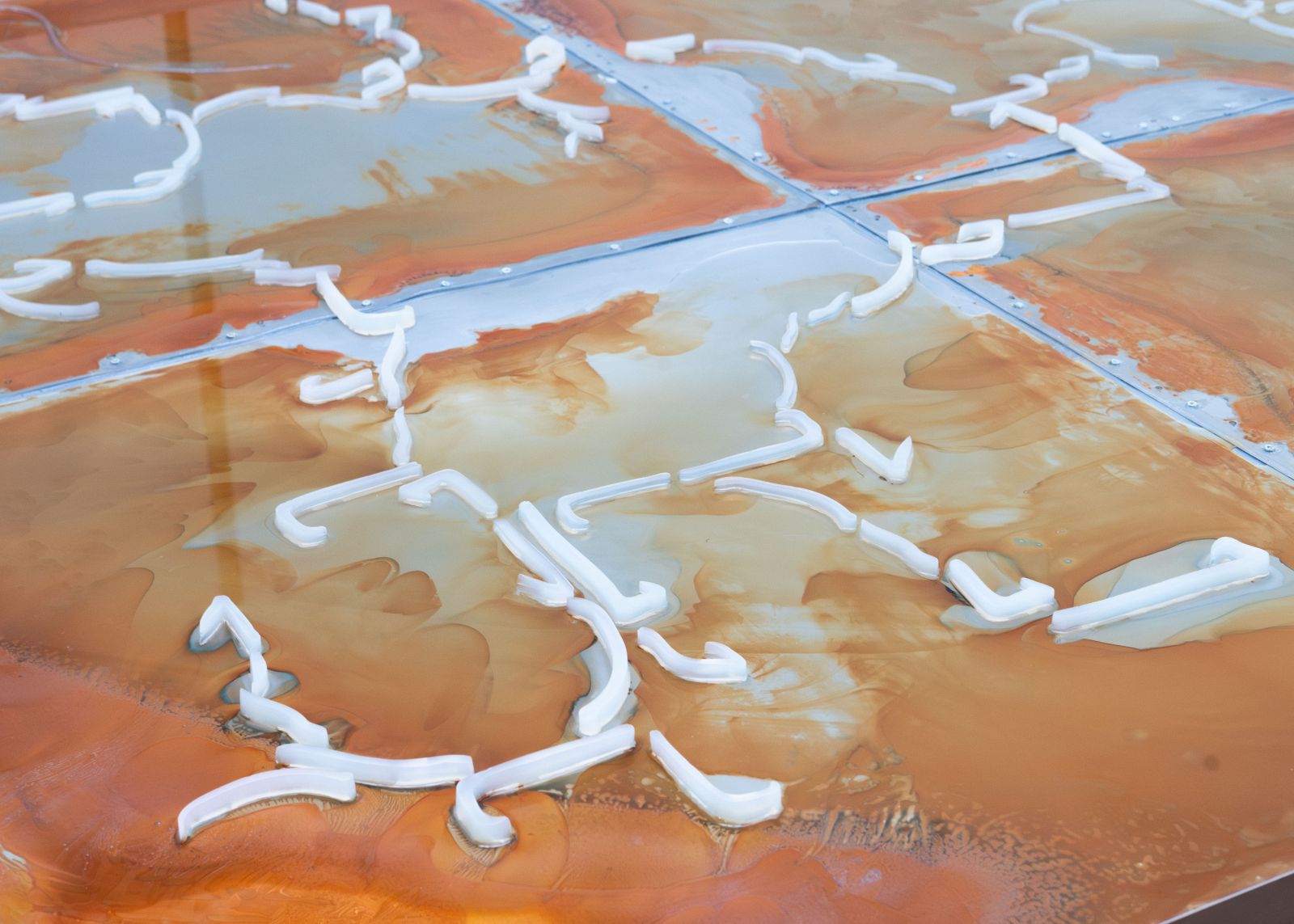
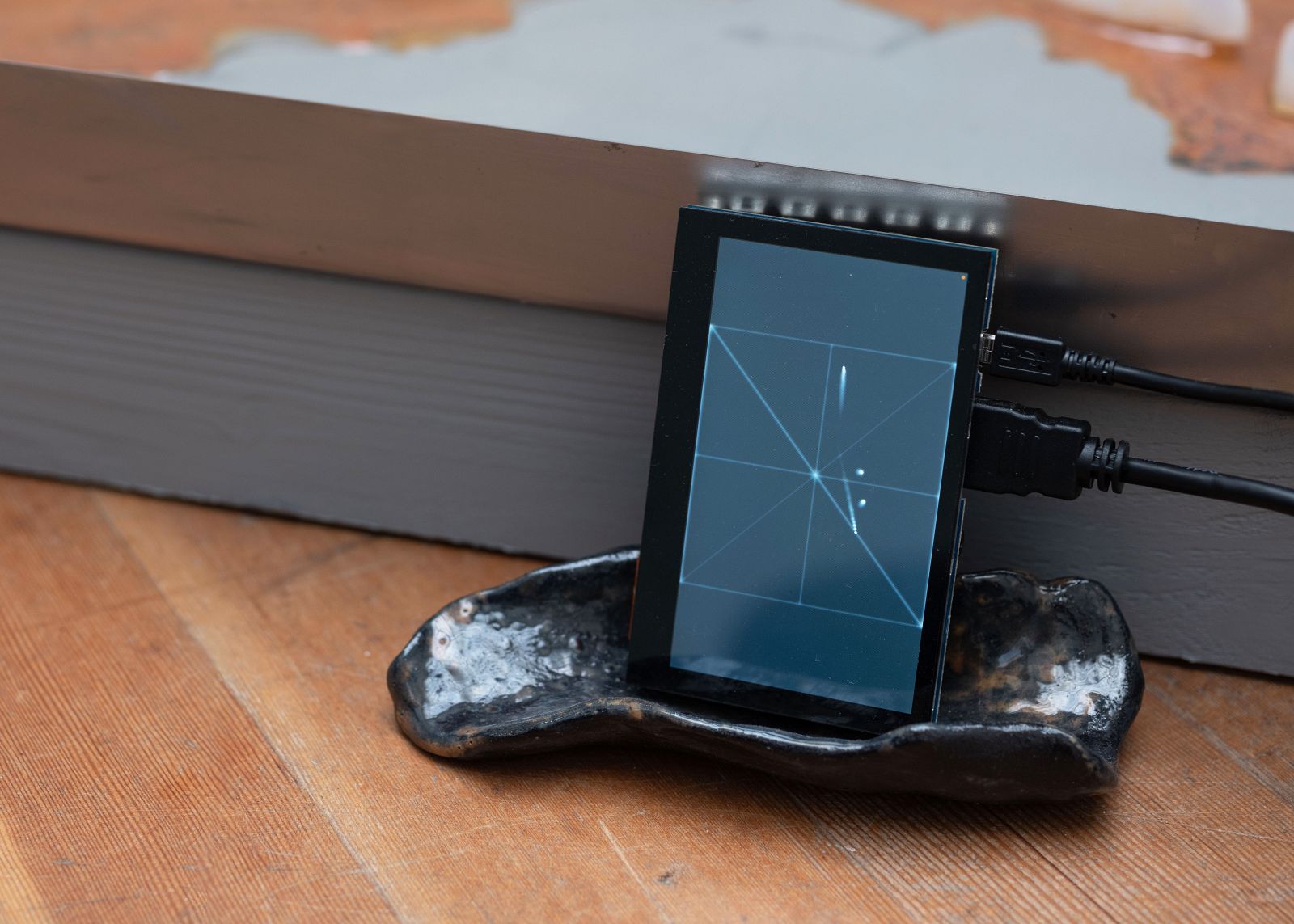
THESIS
at the end of the sentence, it rotted gathers written words and photos exploring how language is not purely about communication,but a medium of revealing hierarchy of bodies, as we assign and circulate signs to bodies - none of which are neutral. Moving between auto-theoretical poetry and essays on 104 pages, I write with an I using language to explore language itself from within; appropriating how words are never innocent, when the languages we speak are the ones with political value.


CREDITS
Project by Cecilie Fang.
Sound design by Andrejs Poikāns.
Website designed by Aliona Ciobanu.
Leaflet designed by Trang Hà.
Description plate designed by Sankrit Kulmanochawong.
Thank you to the people from HackLab for the support and friends who took part in building up.